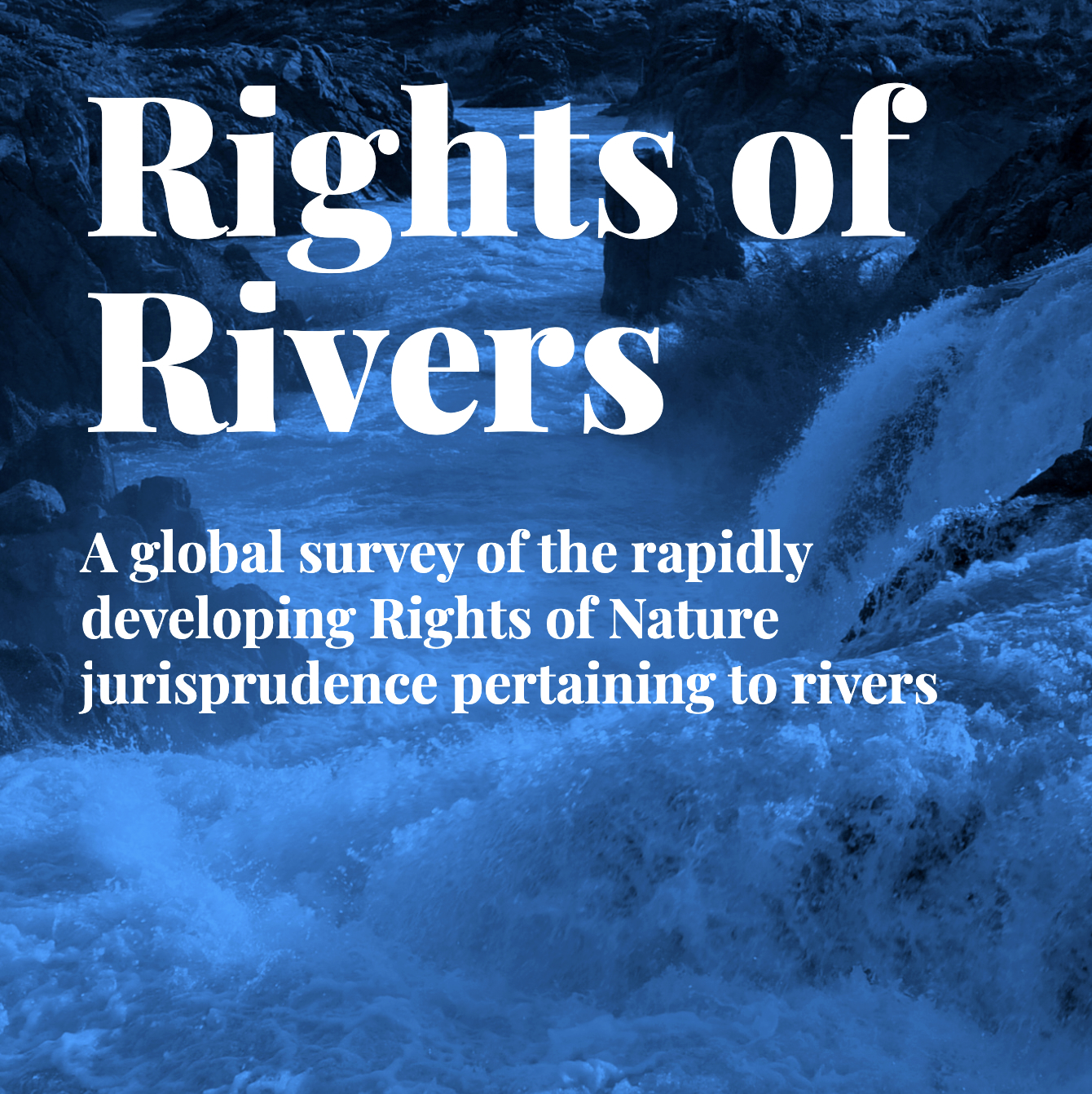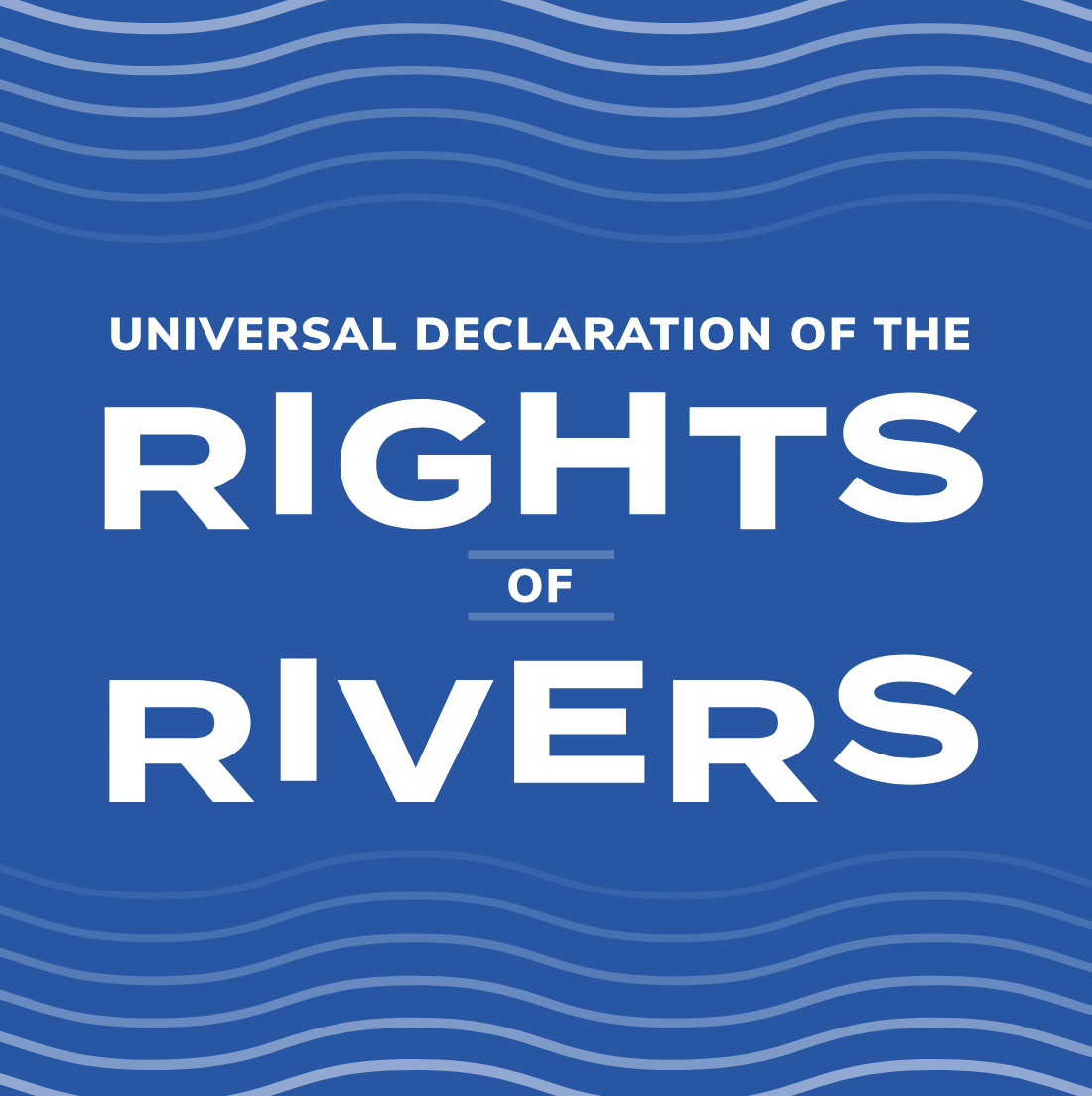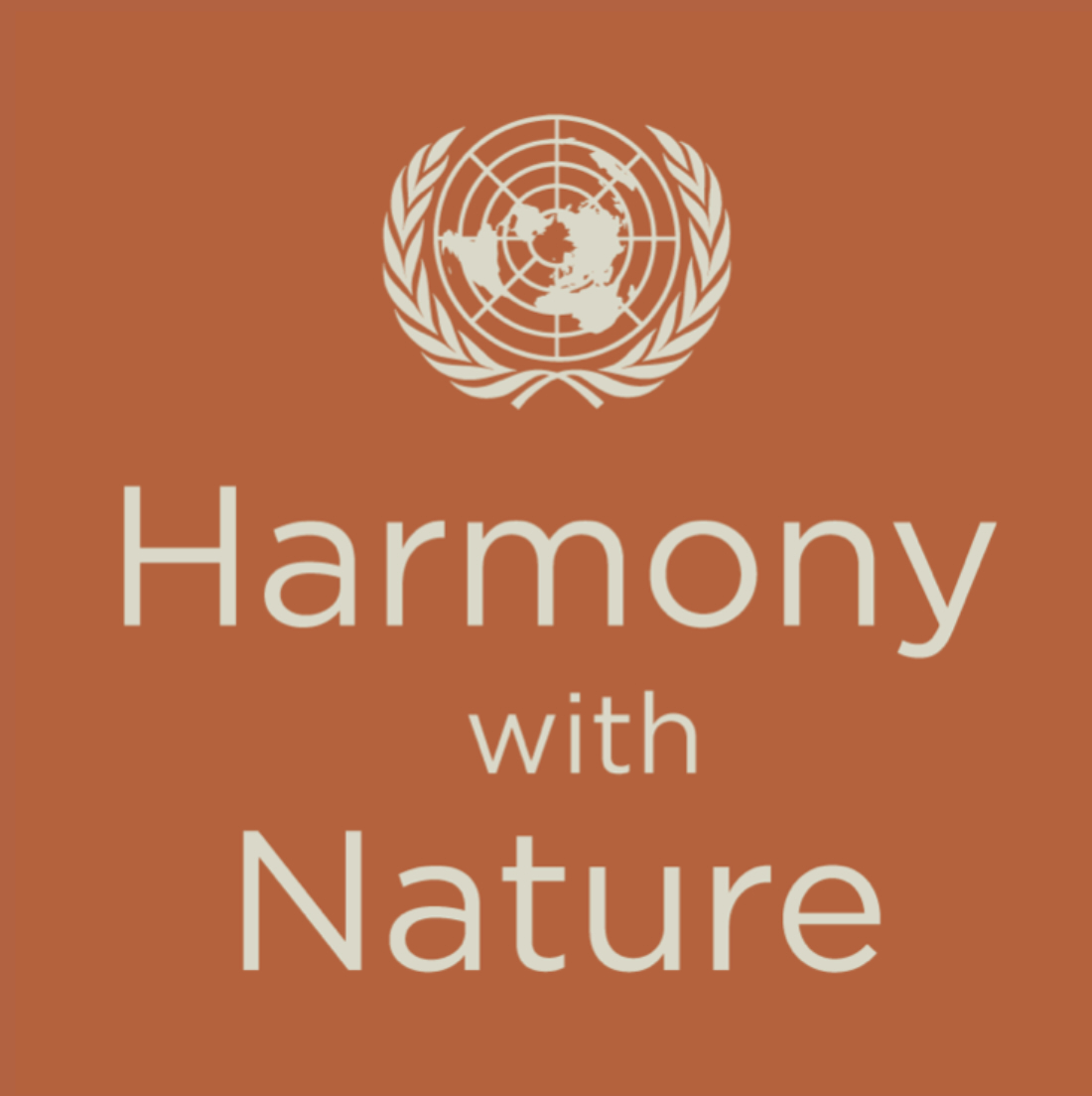Global: Statements
Further resources, if available, can be found in our full bibliography.

Rights of Rivers Report
This report, a collaboration of the Cyrus R. Vance Center for International Justice, Earth Law Center, and International Rivers, explores the global movement to recognize rivers as legal rights-bearing entities. It features legal cases, Indigenous leadership, and community efforts that advance river personhood. Through global case studies, it calls for legal reforms to protect rivers’ ecological and cultural integrity.

Universal Declaration of the Rights of Rivers
The Universal Declaration on the Rights of Rivers calls for legal recognition of rivers as living entities with inherent rights. It affirms vital ecological, cultural, and spiritual roles of rivers; it highlights widespread harm from pollution, dams, and diversions; and it critiques inadequate legal protections. The Declaration draws on Indigenous traditions and global legal precedents to support a new paradigm of harmony with nature.

Earth Jurisprudence Inputs
This resource page compiles expert contributions on Earth Jurisprudence submitted to the UN Harmony with Nature initiative since 2016. Experts from law, economics, science, education, arts, and spirituality present insights that transform human governance, align with ecological integrity, recognize nature’s rights, and frame Earth as a living community rather than a collection of resources.

“The Origin, Differentiation and Role of Rights”
In this statement, Thomas Berry argues that humans must shift from viewing the Earth as property to recognizing it as a rights-bearing community. He asserts that legal systems should acknowledge the intrinsic rights of nature to exist, thrive, and evolve. This shift in values is necessary in order to create a foundation for ecological law rooted in mutual respect and planetary well-being. This is a 2001 version of Thomas Berry’s Ten Principles of Earth Jurisprudence. For the published version please see here.
Photo Credit: Uluru & Kata Tjura National Park, Australia; Ondrej Machart/Unsplash